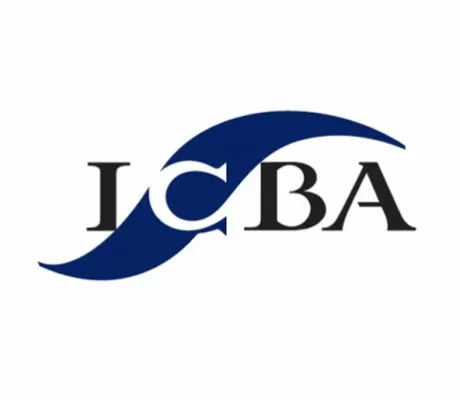In a recent statement, the Independent Community Bankers of America (ICBA) is urging Congress to initiate an investigation into the tax exemption enjoyed by credit unions. This call to action follows the announcement of several credit unions acquiring community banks, prompting concerns about fair competition in the banking industry. The ICBA argues that the tax exemption gives credit unions an unfair advantage over community banks and that it is time for Congress to reevaluate this exemption. With credit unions increasingly expanding their presence in the banking sector, the ICBA believes it is crucial to address this issue in order to ensure a level playing field for all banks.
Table of Contents
ICBA: Congress Must Investigate Credit Union Tax Exemption
The Credit Union Tax Exemption has long been a topic of interest and debate within the banking industry. As credit unions continue to grow and expand their market share, concerns have been raised about the impact of their tax-exempt status on community banks and the overall banking landscape. In light of recent announcements of credit union acquisitions, it is imperative that Congress conduct a thorough investigation into the credit union tax exemption and its potential consequences.
Credit Union Tax Exemption: Overview
The Credit Union Tax Exemption refers to the special tax treatment granted to credit unions, which allows them to operate as not-for-profit entities and avoid federal income taxes. This exemption was established in the early 20th century as a way to support the growth of credit unions and provide them with a competitive advantage over traditional banks. However, as the banking industry has evolved and credit unions have grown in size and scope, questions have been raised about the fairness and necessity of this tax exemption.

This image is property of www.bankingexchange.com.
Reasons to Investigate Credit Union Tax Exemption
There are several compelling reasons why Congress should investigate the credit union tax exemption. Firstly, there are concerns about the unequal treatment of credit unions and community banks. While credit unions enjoy tax-exempt status, community banks are subject to federal income taxes. This creates an uneven playing field and potentially disadvantages community banks in the competitive banking market.
Secondly, the credit union tax exemption has implications for industry competition. As credit unions acquire community banks, they are effectively expanding their market share and potentially reducing competition within the banking industry. This consolidation could lead to reduced options for consumers and less competition in terms of rates and services offered.
Furthermore, the credit union tax exemption results in potential loss of tax revenue for the government. With credit unions exempt from federal income taxes, the government is missing out on potential revenue that could be used to fund public services and infrastructure. In an era of increasing budget deficits, it is important to explore all avenues for revenue generation.
Lastly, there may be unintended consequences of the credit union tax exemption that need to be examined. For example, the tax exemption may distort the market and lead to inefficiencies and market imbalances. It is crucial to investigate these potential consequences to ensure a fair and efficient banking industry.
Recent Announcements of Credit Union Acquisitions
In recent months, there have been several high-profile announcements of credit unions acquiring community banks. These acquisitions have sparked concerns within the industry about the impact on community banks and the broader banking landscape.
The number and size of Community banks being acquired by credit unions is significant. These acquisitions are not isolated incidents, but rather part of a larger trend of credit unions expanding their reach through acquisitions. The geographic distribution of these acquisitions is also worth noting, as credit unions are targeting communities across the country.
Key players in these credit union acquisitions include both large and small credit unions. Some of these credit unions have significant assets and resources, which allow them to compete aggressively in the acquisition market. This has raised questions about the ability of community banks to effectively compete with credit unions in terms of resources and reach.

This image is property of www.bankingexchange.com.
Impact of Credit Union Acquisitions on Community Banks
The wave of credit union acquisitions has had a significant impact on community banks. One of the most immediate effects is the reduction in market share for community banks. As credit unions acquire community banks, their market share increases, potentially squeezing out smaller community banks from their traditional customer base.
Community banks also face challenges in competing with credit unions in terms of financial resources. Credit unions, with their tax-exempt status, have certain advantages in terms of funding and capital availability. This can make it difficult for community banks to compete for customers and maintain profitability.
The impact on local communities is also a concern. As credit unions acquire community banks, there is a potential loss of local control and decision-making. This could lead to a decrease in lending to local businesses and a reduction in community-focused initiatives.
To remain competitive in the face of credit union acquisitions, community banks may need to consider alternative strategies. This could include forming partnerships or alliances with other community banks, investing in technology and innovation, or exploring new products and services to differentiate themselves from credit unions.
Comparison of Credit Union and Community Bank Tax Exemption
A key issue in the debate over the credit union tax exemption is the differential treatment between credit unions and community banks when it comes to taxes. Credit unions, as not-for-profit organizations, are exempt from federal income taxes, while community banks are subject to these taxes.
Proponents of the tax exemption argue that it is justified as credit unions serve a distinct purpose and have a different organizational structure compared to for-profit banks. Credit unions are member-owned and operate as cooperatives, which allows them to prioritize the needs of their members over maximizing profits. This unique structure and mission, proponents argue, warrant the tax exemption.
However, critics of the tax exemption argue that it creates an uneven playing field and disadvantages community banks. Community banks, unlike credit unions, do not have the advantage of tax-exempt status and must compete in a market where credit unions enjoy certain benefits. This differential treatment, critics argue, distorts market competition and can put community banks at a disadvantage.
The potential impact of equal tax treatment is an area that should be explored. If credit unions were subject to federal income taxes, it could level the playing field and potentially create a more competitive banking market. However, there may be unintended consequences of eliminating the tax exemption that need to be carefully considered.

This image is property of www.bankingexchange.com.
Possible Consequences of Credit Union Tax Exemption
The credit union tax exemption is not without potential consequences, some of which may have broader implications for the banking industry and the economy as a whole.
One possible consequence of the tax exemption is market distortions. The tax-exempt status of credit unions may encourage the growth and expansion of credit unions at the expense of community banks. This could lead to an imbalance in the market and potentially reduce competition and choice for consumers.
The impact on small business lending is also a concern. Community banks have traditionally been a key source of funding for small businesses, as they have deep ties to their local communities and are more familiar with the specific needs of small businesses. If credit unions continue to acquire community banks, it could potentially reduce access to credit for small businesses and hinder their ability to grow and create jobs.
The tax exemption could also have implications for local economies and revitalization efforts. Community banks often play a crucial role in financing local development projects and supporting initiatives that promote economic growth and revitalization. If community banks are marginalized or acquired by credit unions, it could weaken these efforts and hinder the economic progress of local communities.
Lastly, the tax exemption may impact consumer choice and competition. With fewer community banks and more credit unions, consumers may have fewer options when it comes to choosing a financial institution. This could result in reduced competition and potentially higher fees and rates for consumers.
Potential Solutions and Alternatives to Credit Union Tax Exemption
There are various options and alternatives that could be explored in relation to the credit union tax exemption. One potential solution is to modify or eliminate the tax exemption for credit unions. This would level the playing field between credit unions and community banks and potentially create a more competitive banking market.
However, it is important to carefully consider the potential impacts of modifying or eliminating the tax exemption. This could have unintended consequences, such as reducing the availability of credit for certain groups or communities. It is crucial to strike a balance between promoting fair competition and ensuring access to financial services for all.
Another alternative to consider is the implementation of stricter regulations and oversight for credit unions. This would ensure that credit unions are operating in a manner consistent with their mission and purpose, while also addressing some of the concerns raised about the tax exemption. By increasing transparency and accountability, it may be possible to address some of the concerns associated with the tax-exempt status of credit unions.
Congressional Role in Investigating Credit Union Tax Exemption
Given the importance and potential consequences of the credit union tax exemption, it is imperative that Congress take a proactive role in investigating this issue. Congressional oversight and investigation can provide a comprehensive and unbiased examination of the tax exemption and its impact on the banking industry.
Possible committees and subcommittees that could take on this investigation include the House Committee on Financial Services and the Senate Banking, Housing, and Urban Affairs Committee. These committees have jurisdiction over banking and financial services issues and are well-suited to conduct a thorough investigation.
The scope and objectives of the congressional investigation should include a comprehensive analysis of the credit union tax exemption and its implications for industry competition, market distortions, small business lending, local economies, and consumer choice. The investigation should also consider potential solutions and alternatives to address any concerns identified.
Timeline for Congressional Investigation
Given the urgency and importance of the issue, a timeline should be established for the congressional investigation into the credit union tax exemption. This will ensure that the investigation progresses in a timely manner and that any potential recommendations or actions can be implemented effectively.
The timeline should include various stages of the investigation, such as data collection and analysis, stakeholder consultations, public hearings, and the development of a final report with recommendations. It is crucial that the investigation be thorough and comprehensive to ensure that all relevant issues are addressed.
Conclusion and Call to Action
In conclusion, the credit union tax exemption is a topic that deserves careful consideration and examination. The recent announcements of credit union acquisitions highlight the need for Congress to investigate the tax exemption and its potential consequences.
Congress must take a proactive role in conducting a thorough investigation into the credit union tax exemption. This investigation should consider concerns about unequal treatment, industry competition, potential loss of tax revenue, and unintended consequences. Potential solutions and alternatives should also be explored to address any identified concerns.
It is important for Congress to act swiftly and decisively on this issue to ensure a fair and competitive banking industry that benefits all stakeholders. The investigation into the credit union tax exemption should be a priority for Congress and a call to action for the industry as a whole.

